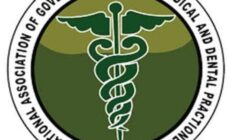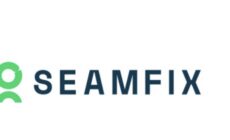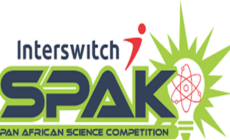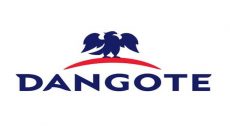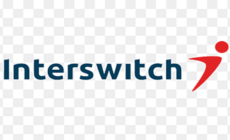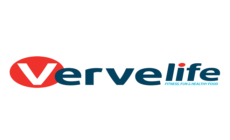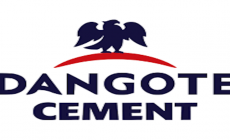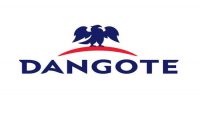PRESS RELEASE
The National Agency for Food and Drug Administration and Control (NAFDAC) is deeply concerned about the abuse of prescription medicines and other psychoactive substances not under international control.
The fundamental objective of the drug control conventions is to achieve a balance between ensuring availability for medical and scientific purposes and preventing diversion to illicit use and abuse. The Agency will therefore continue to raise awareness of the public health consequences of drug abuse while promoting healthy lifestyles through effective and comprehensive demand reduction initiatives in accordance with the three international drug control conventions and national legislation.
Controlled medicines offer a simple, cost-effective solution to many health problems provided they are available, of the right quality, safety and efficacy; and are rationally. The Commission on Narcotic Drugs expects Member States to improve access to controlled medicines for medical and scientific purposes by appropriately addressing existing barriers in this regard, including reviewing the regulatory and administrative mechanism to ensure availability and access to controlled medicines. The Director of NAFDAC’s Narcotics and Controlled Substances, Dr. Musa Umar emphasized that the misuse of controlled medicines appears to result from both their diversion from licit channels and distribution of illicitly manufactured products.
The United Nations Office on Drugs and Crime (UNODC) through the NGA V16 Project, Response to Drugs and Related Organised Crime in Nigeria has assisted the Agency in developing data collection mechanisms for the estimation of national needs as well as development of documents which improve the administrative framework for drug control and, in capacity building and training of regulators and health care professionals for improved access to controlled medicines.
The most commonly abused drugs in the country are Tramadol and Codeine. Tramadol is a synthetic opioid analgesic used to treat moderate to severe pain and is the most abused effective medicine among addicts. It has no effects on the respiratory system but overdose causes arrhythmias, cramps, coma and death. In Nigeria, it is regulated as the 50 and 100mg dosage strengths but very high dosage forms of 200 and 225mg have infiltrated the market. There is also noticeable increase in smuggling of Tramadol capsules. Tramadol use disorder is associated with physical withdrawal symptoms and compulsive behaviour.
Codeine can be obtained in compound form in Over-The-Counter pain killers and cough medicines but consumers often became addicted. The risk of addiction is great and in many countries including Nigeria consumers require a prescription for all opioid-based medication. The misuse of codeine products contributes to severe health outcomes including liver damage, stomach ulceration, respiratory depression, coma and death. In Nigeria, all codeine-containing products are locally manufactured and are prescription-only-medicines since 2012 but the reclassification did not stem the trend of abuse partly due to non-adherence to the provisions of prescription.
The lack of due diligence to ensure the integrity of the distribution chain has led to unauthorised distributors distributing the products to illicit channels and, to traders with little or no knowledge of the public health consequences of codeine-containing products illegally importing large volumes of codeine cough syrup to satisfy the market demands since being “exempt narcotics” no export authorisation from national competent authorities is required before shipments can be made.
Tramadol, a hitherto prescription-only-medicine was put under national control in 2013 after the 59th National Council on Health (NCH) meeting, based on national trends of abuse, harm to public health and social well-being. This was clearly an intervention to control supply and requires the manufacturer, importer, distributor and retailer to document all transactions including disposal of the drug. Sadly, national control measures can be circumvented at the international level hence the need to work in partnership through the United Nations to check the rising menace of pharmaceutical drug abuse among the at risk groups.
Expectedly at the 57th Session of the Commission on Narcotic Drugs (CND) in 2014, concerns were raised on the increase in the abuse of New Psychoactive Substances, such as tramadol not controlled under the International Drugs Control Conventions. Nigeria supported the call for scheduling of tramadol in order to bring it under the Import/Export Authorisation System of the International Narcotics Control Board (INCB) to effectively international trade in Tramadol.
However, there was lack of data necessary to achieve that change in scope for tramadol under the United Nations Conventions even though there is growing evidence of abuse of tramadol in many countries, accompanied by adverse reactions, and tramadol-associated deaths. Nonetheless, in 2017 the Expert Committee on Drug Dependence of the World Health Organisation requested for information on the extent of problems associated with Tramadol misuse to enable critical review of the dangers associated with the abuse of Tramadol worldwide.
In Nigeria as in many African and Middle countries there are signs of expansion the market for Tramadol. From the January and June 2018 data, provided by NAFDAC’s Ports Inspection Director, Prof Samson Adebayo, 29 X 40’ containers were intercepted at the Apapa Port all containing unregulated 200/225mg Tramadol capsules. At the Onne Port 9 X40’ containers containing the similar formulations were also intercepted and handed over to the Agency by the Nigeria Customs Service. In another development, 180 cartons of Tramadol 225mg were intercepted by the Nigeria Customs Service at the SAHCOL Shed of the Murtala Mohammed Airport, Lagos. The consignment has since been handed over to NDLEA. The Onne Port, Tincan Island Port and all the land borders are not approved as entry points for Pharmaceuticals into the country and the Agency is worried about the clearance of Pharmaceuticals through unapproved entry points. The modes of concealment and importation of illicit Pharmaceuticals into the country remain complicated and serious challenge to effective control at the national, regional and international level. These large amounts of Tramadol were destined for illicit markets but were seized. Hence the need for improved cooperation, collaboration, coordination and information sharing between and amongst regulatory and enforcement agencies in real time to detect and prevent diversion of controlled medicines to illicit markets and abuse.
In order to address the public health, safety and social problems resulting from drug use, the following trends need to be addressed holistically:
• Extra-territorial enforcement to identify, disrupt and dismantle organised criminal groups operating across borders.
• Over-prescription by health professionals and over consumption by the public
• Lack of collaborative and inter-professional research among stakeholders that could generate the needed data and justify control at our borders
• The common phenomenom of users by-passing the health facilities and turning directly to pharmacies and medicine stores
• More Direct-to-Consumer advertising of both prescription-only and over-the-counter medicines with internet sales and cash-on- delivery options.
NAFDAC is committed to implementing the recommendations of the United Nations General Assembly (UNGASS) 2016 outcome document on the safe use of controlled medicines for pain and palliative care, including enhanced data collection mechanisms throughout the controlled medicines supply chain. It is also important to develop early warning systems that look at the emergence and consequences of the non-medical use of narcotics and psychotropic substances while at the same time supporting and strengthening regulatory framework that would support best clinical practices and rational use of controlled medicines.
The Director General, Prof Mojisola Adeyeye remarked that stakeholders are working with Honourable Minister of Health, Office of National Security Adviser and the Presidency to develop strategies to mitigate the abuse of drugs in the country.
Signed
DG NAFDAC




